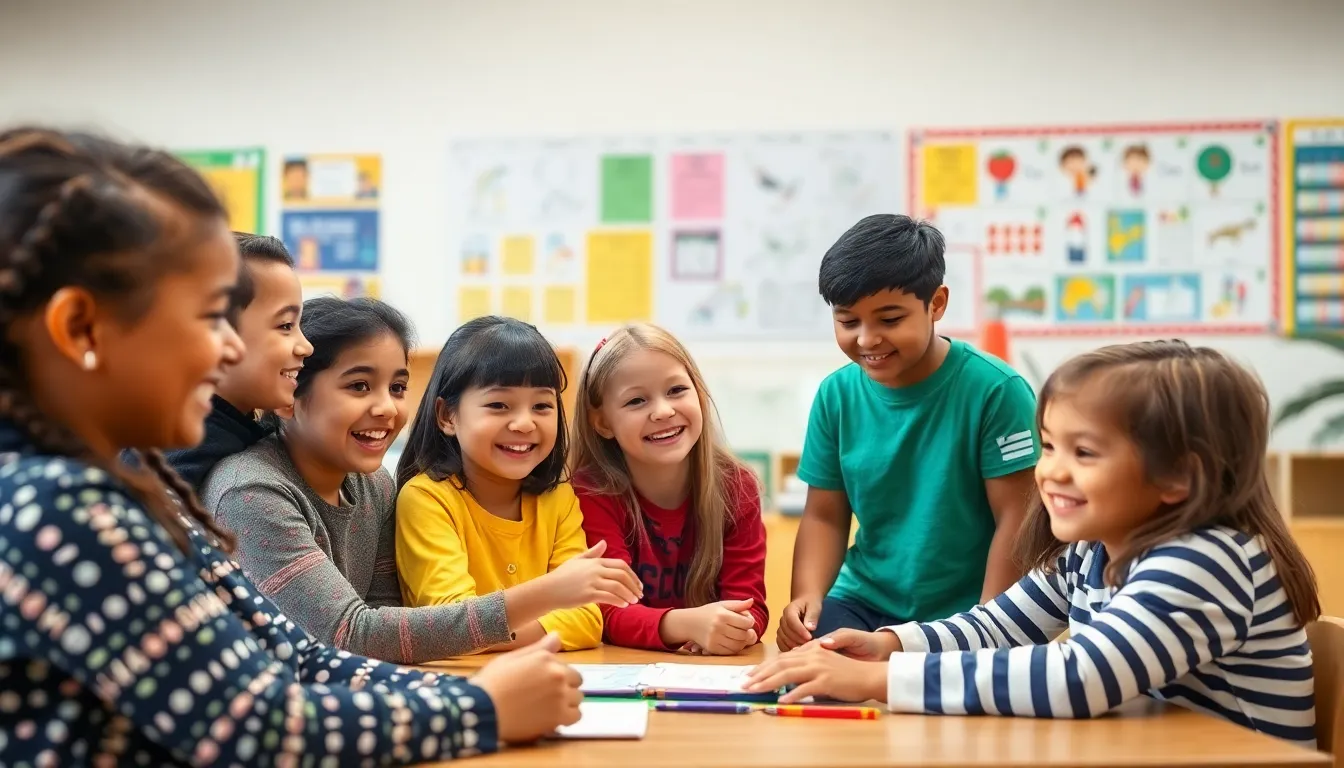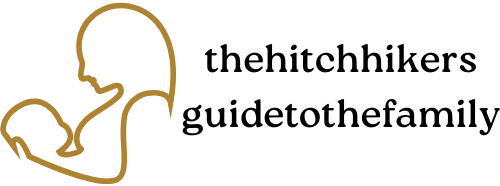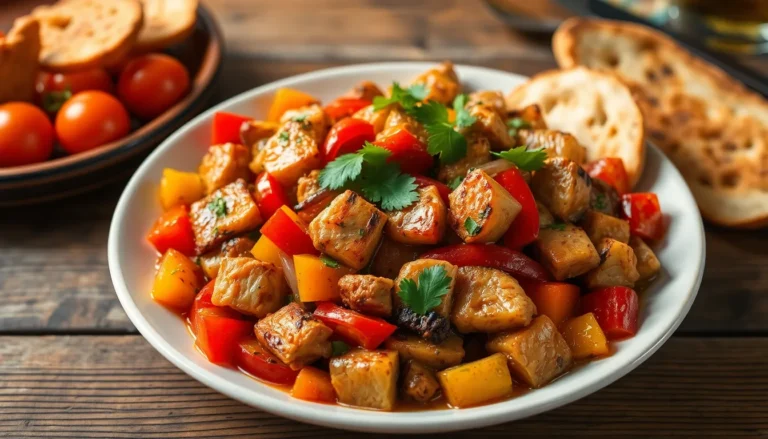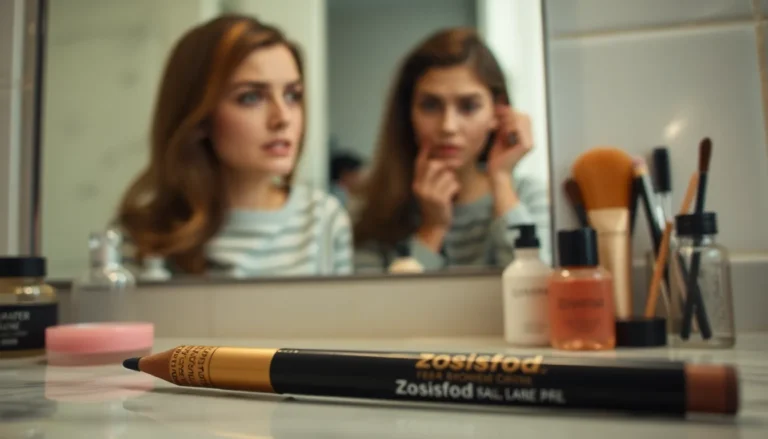Table of Contents
ToggleIn today’s fast-paced world, fostering a growth mindset in children has become essential for their development. This powerful concept encourages kids to embrace challenges, learn from failures, and believe in their ability to improve. By instilling this mindset early on, parents and educators can help children navigate obstacles with resilience and confidence.
Understanding the importance of a growth mindset can transform how children approach learning and personal growth. Instead of fearing mistakes, they’ll see them as opportunities for growth. This shift in perspective not only enhances academic performance but also cultivates emotional intelligence and adaptability—skills crucial for success in life. Embracing a growth mindset lays the foundation for lifelong learning and achievement.
What Is Growth Mindset for Children?
Growth mindset for children refers to the belief that abilities and intelligence can be developed through dedication, effort, and learning from experiences. This perspective encourages children to view challenges as opportunities for growth rather than obstacles to avoid. Children with a growth mindset understand that persistence and resilience lead to improvement.
Key characteristics of growth mindset in children include:
- Embracing Challenges: Children approach difficult tasks with enthusiasm, seeing them as a way to learn and grow.
- Learning from Mistakes: Children view failures as valuable lessons, allowing them to reflect and adjust strategies.
- Effort Over Outcome: Children recognize that effort is crucial, prioritizing hard work over innate talent.
- Positive Self-Talk: Children use encouraging language when facing difficulties, reinforcing their belief in their ability to improve.
- Seeking Feedback: Children actively seek constructive criticism, understanding its role in their development.
Research indicates that children with a growth mindset often achieve higher academic outcomes. They tend to demonstrate greater resilience and adaptability, essential for navigating life’s challenges. By fostering a growth mindset, parents and educators equip children with tools for lifelong learning and personal development.
Importance of Growth Mindset

Cultivating a growth mindset in children proves vital for their overall development and success. This approach directly impacts their academic achievements and emotional health.
Benefits for Academic Success
A growth mindset encourages children to embrace challenges and persist through difficulties. They view setbacks as learning opportunities, which enhances problem-solving skills. Research shows that students with a growth mindset achieve 20% higher grades compared to those with a fixed mindset. They engage more in class and are more likely to seek help when needed, leading to improved academic performance. They also develop skills like critical thinking and creativity, which contribute to lifelong learning.
Benefits for Emotional Well-Being
Children with a growth mindset exhibit higher levels of resilience and adaptability. They learn to cope with stress and anxiety by reframing failures as part of the learning process. This mindset promotes positive self-talk, helping them build self-esteem and confidence. Studies indicate that these children often report lower rates of depression and anxiety. By encouraging emotional regulation, they develop healthier relationships and a more positive outlook on life.
How to Cultivate Growth Mindset in Children
Cultivating a growth mindset in children involves strategic approaches that reinforce their belief in development and learning. Here are several effective methods to support this mindset.
Encouraging Effort Over Outcome
Encouraging children to focus on their effort instead of just the results builds a strong foundation for a growth mindset. Praising persistence and hard work, rather than merely celebrating successes, reinforces the value of dedication. For example, using phrases like “I’m proud of how hard you worked on that project” helps children understand that effort leads to improvement. This approach fosters a learning environment where effort is recognized as the path to growth, making them more likely to tackle challenges head-on.
Teaching Resilience and Persistence
Teaching resilience involves helping children understand that setbacks are a natural part of the learning process. Modeling resilience through personal experiences, showing how difficult situations can lead to growth, provides practical examples. Engaging children in discussions about famous figures who overcame failures, like Thomas Edison and J.K. Rowling, illustrates the power of perseverance. Encouraging them to set realistic goals and reminding them that consistent effort leads to eventual success promotes a mindset geared towards overcoming obstacles.
Providing Constructive Feedback
Constructive feedback plays a vital role in fostering a growth mindset. Specific, actionable feedback helps children identify areas for improvement and reinforces their potential for growth. Instead of saying, “You did well,” use more detailed comments like, “You demonstrated great problem-solving skills in that math task; next time, try to explain your reasoning a bit more.” This type of feedback not only pinpoints strengths and weaknesses but also encourages a continuous improvement approach. Regularly involving children in goal-setting, based on this feedback, empowers them to take ownership of their learning journey.
Activities and Strategies to Foster Growth Mindset
Fostering a growth mindset in children involves engaging them in various activities and strategies that encourage exploration and resilience. These approaches help children understand their abilities can develop through effort and learning.
Games and Challenges
Games and challenges create opportunities for children to embrace a growth mindset. Examples include:
- Puzzle-solving games: Encourages critical thinking, persistence, and problem-solving skills.
- Team sports: Promotes cooperation, resilience, and learning from both wins and losses.
- Board games: Engages strategic thinking and teaches that effort can lead to improvement.
- Creative challenges: Activities like building with blocks or art projects foster creativity and adaptability.
Introducing progressively challenging tasks helps children learn the value of persistence and effort.
Role-Playing and Scenarios
Role-playing and scenarios allow children to practice new skills and perspectives. Effective methods include:
- Scenario-based discussions: Provides hypothetical situations where children identify solutions, emphasizing learning from mistakes.
- Character exploration: Children act out characters who face challenges, aiding their understanding of perseverance and resilience.
- Real-life problem-solving: Engages children in familial or social scenarios, fostering empathy and collaborative growth.
These activities help children internalize the growth mindset by illustrating that challenges and setbacks are part of the learning process.
Fostering a growth mindset in children is essential for their development and future success. By encouraging them to embrace challenges and view failures as learning opportunities, parents and educators can significantly impact their resilience and adaptability. This mindset not only enhances academic performance but also contributes to emotional well-being.
Through strategic approaches and engaging activities, children can learn the value of effort and persistence. As they cultivate a growth mindset, they become better equipped to navigate life’s challenges and maintain a positive outlook. Ultimately, instilling this mindset lays a strong foundation for lifelong learning and personal growth.







